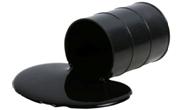Prices

January 30, 2017
Keystone XL Benefits to Industry Questioned
Written by Sandy Williams
The Keystone XL Pipeline was given approval by the new administration through executive order last Tuesday. Since that time there has been a flurry of speculation on what kind of benefit building the pipeline will provide to the U.S. steel Industry.
“We are — and I am — very insistent that if we’re going to build pipelines in the United States, the pipe should be made in the United States,” Trump said Tuesday. “We build the pipelines. We want to build the pipe. It’s going to put a lot of workers, a lot of steelworkers, back to work.”
TransCanada responded by resubmitting its application the U.S. Department of State for approval of the project.
“We’re very pleased to have the opportunity to resubmit (the KXL) application. I’ve always believed this is a very important project for both of our nations, from a security standpoint, from an energy independence standpoint, and from a safety standpoint,” said Russ Girling, TransCanada’s president and chief executive officer.
In an email to SMU, TransCanada spokesperson Terry Cunha said the company is aware that the Secretary of Commerce will come up with a revised plan to implement the President’s executive order.
“We will need time to review and analyze the plan when it is released to determine its impact to KXL,” said Cuhna “Our focus is on continuing the dialogue with Federal, State, Tribal and local leaders to secure the support needed to make this important infrastructure project a reality. In addition to the Presidential Permit, a state permit is required in Nebraska. We will be applying for that in the coming weeks.
“In regards to timing, we expect the project to be placed into service within two years of the start of construction.
Thomas Gibson, president of the American Iron and Steel Institute president Thomas Gibson praised the decision by the administration. “Taken together,” said Gibson, “building these pipelines, ensuring key markets for domestic steel and pipe products, and lowering the burdens to manufacturing in the U.S., will help ensure that our industry remains highly productive and internationally competitive.”
Industry benefits or not
That is the key question however, will the Keystone XL pipeline actually boost market production and sales?
Trump’s policy says that the pipeline must be built with American-made materials “to the maximum extent possible and to the extent permitted by law.” This Buy American policy sounds good on the surface but may go against a World Trade Organization agreement that prohibits WTO members from discriminating against foreign suppliers and giving preferential treatment to domestic ones.
Dan Ikenson, director of the Cato Institute’s Herbert A. Stiefel Center for Trade Policy Studies told CNBC that a directive by a U.S. president to a private company to use U.S. made materials was unprecedented.
“First of all, this is private investment, so there’s no legal authority for the government to require a private company to use domestic materials,” said Ikenson. “Is it good policy to have the president dictate where U.S. companies buy their inputs? No. I think that’s terrible. I think that’s dictatorial. I think it’s very bad precedence.”
Ikenson told CNBC that mandating that an industry use material from one country would raise the cost of the project by limiting the supply and giving a monopoly to domestic producers. In turn, that would allow suppliers to abandon the pricing discipline that competition creates and invite retaliation from trade partners that would impact U.S. exports.
There is also the fact that TransCanada already purchased the majority of the pipe it will need for construction two years ago when the deal appeared to have the support of the U.S. Congress. The bill to go forward with construction was eventually vetoed by President Obama. The pipe has since then languished in warehouses and at on-site holding areas.
When SMU spoke with TransCanada previously, the company said 50 percent of the required 821,000 tons of high strength line pipe (322,800 tons) was being manufactured in the U.S. by Welspun Corp., owned by India-based Welspun Group. The rest of the steel was sourced from Russian-owned Evraz Canada (24 percent), Ilva in Italy (16 percent) and Welspun in India (10 percent). TransCanada estimated 660,000 tons of steel would be used in the U.S. portion of the Keystone XL as well as 35,000 tons of additional steel products used for fittings, tanks, pumps, etc.
Most of the pipe that is needed has already been manufactured and purchased limiting the amount of new orders the U.S steel industry could potentially receive. It is unlikely that TransCanada would abandon already purchased items to rebuy them from American sources.
The Keystone pipeline requires 36 inch diameter high quality carbon steel welded line pipe with special corrosion resistant coating. The pipe used for most cross country applications will have a wall thickness of 0.465 inches and must operate at maximum operating pressure of 1308 psig with a minimum yield strength of 72 percent. The pipe has very specific requirements that are not made by most producers.
“There are people who make (this type of) steel pipe in the U.S., but they’re mostly Indian and Russian” companies, said Charles Bradford, an analyst at New York-based Bradford Research, in a comment to Reuters.







